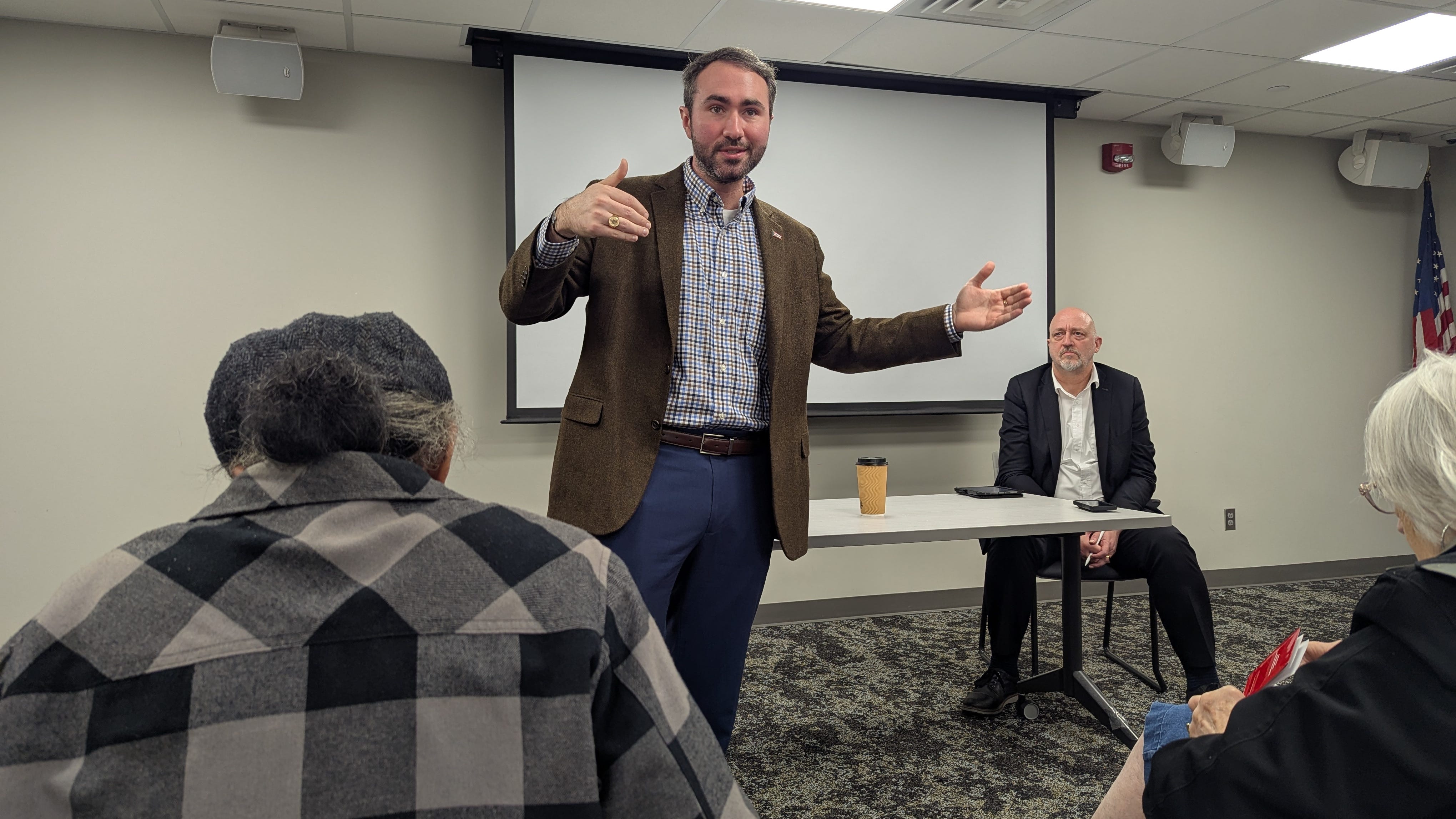
Town hall shows frustrations over property taxes
Ohio State Rep. David Thomas, R-Jefferson, addresses a property tax town hall organized by state Rep. Gary Click, R-Vickery, in Fremont, Ohio.
- Ohio House Bill 28 seeks to ban replacement property tax levies, which increase revenue for local governments as property values rise.
- Supporters argue that replacement levies are misleading to voters, while opponents say they are essential for funding local services.
Ohio would eliminate one type of property tax levy under a bill passed by the Ohio House Wednesday as lawmakers seek to quell homeowner concerns about high taxes.
House Bill 28 would prohibit local governments and taxing jurisdictions from putting replacement levies on the ballot. The proposal is one of several ideas on the table to provide property tax relief after home values skyrocketed in 2023 and 2024 and left many taxpayers in the lurch.
“We have seen the impact of increased property taxes, and our constituents have been clear in their desire to see meaningful, systemic property tax (reform) enacted,” Rep. Adam Mathews, R-Lebanon, said. “This is a step towards that.”
Ohio allows four different kinds of levies, according to the Legislative Service Commission, two of which sound similar: Replacement and renewal.
Renewal levies extend a levy at its current effective millage rate, which includes discounts that Ohioans receive through House Bill 920. That law, passed in 1976, provides credits to ensure rising property values don’t automatically lead to tax increases.
Replacement levies, on the other hand, replace an existing levy with updated property values − sometimes at the same tax rate. This allows local governments to collect more money from rising home values. For homeowners, it can lead to higher tax bills even if the rate didn’t change on paper.
Supporters of House Bill 28 contend replacement levies mislead voters and add confusion to an already complicated property tax system. Leaders of municipalities, school districts and other taxing entities say these levies are a necessary tool, especially when they struggle to find other ways of funding local services.
“These communities cannot afford to have vital funding mechanisms eliminated, particularly at a time when operating costs continue to rise and residents are increasingly cautious about approving new taxes,” Joe Kitchen, president of the Ohio Fire Chiefs’ Association, told a House committee.
House Bill 28 now heads to the Senate.
It remains to be seen what, if any, property tax relief the Legislature will send to Gov. Mike DeWine this session. Lawmakers have competing ideas and disagree over whether the state or local governments should bear most of the responsibility. Experts have also cautioned against overcorrecting the system and making matters worse.
“This bill is more of the chainsaw approach,” Rep. Dan Troy, D-Willowick, said, “but I guess these days we are using chainsaws a little bit more.”
Statehouse bureau reporter Jessie Balmert contributed.
Haley BeMiller covers state government and politics for the USA TODAY Network Ohio Bureau, which serves the Columbus Dispatch, Cincinnati Enquirer, Akron Beacon Journal and 18 other affiliated news organizations across Ohio.

